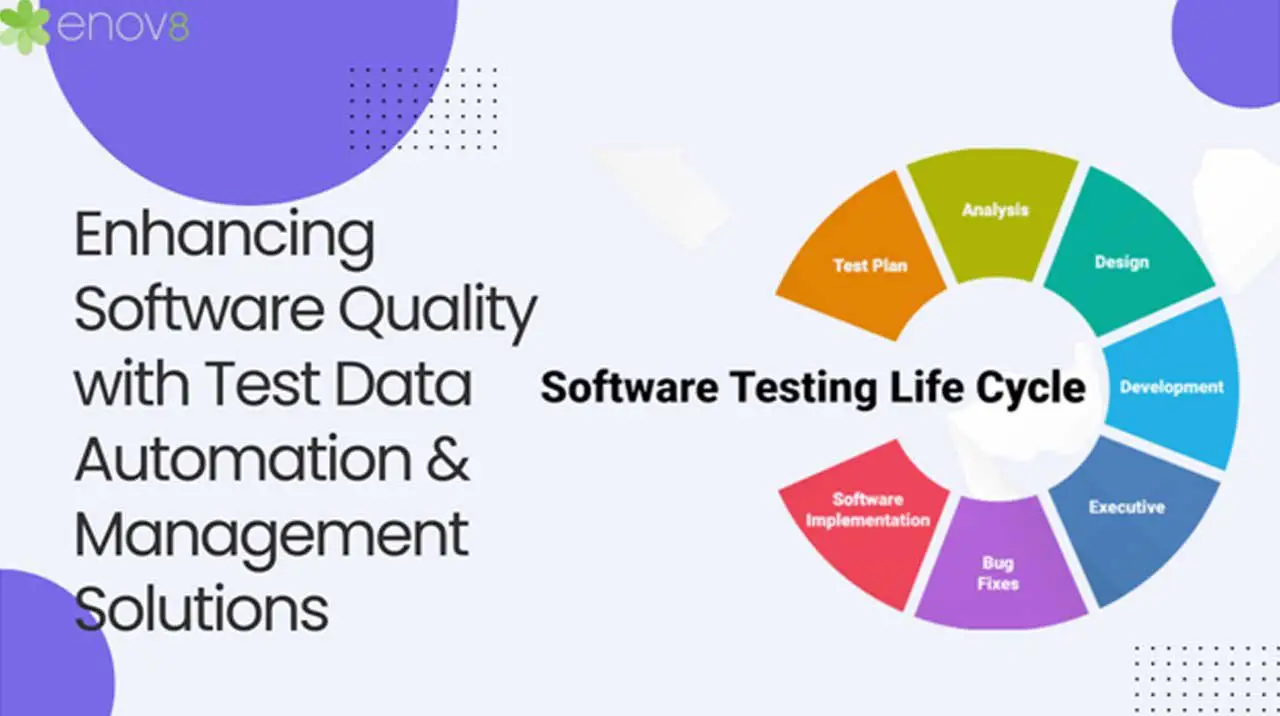In today’s fast-paced software development landscape, ensuring the efficiency and effectiveness of testing processes is crucial for businesses to deliver high-quality software products.
Test data management plays a pivotal role in streamlining automation, enabling you to optimize your organization’s testing environments and accelerate the software development lifecycle.
This article explores the significance of test data or test environment management tools and how they can contribute to seamless automation, improved testing efficiency, and overall product quality.
What are the roles of test data management tools?
Test data management tools are designed to facilitate the creation, provisioning, and maintenance of test data for software testing purposes.
These tools provide organizations with a systematic approach to handling the complexity of managing test data across various test environments.
Here are some key roles that test data management tools fulfill:
Data Provisioning
Test data management tools facilitate the provisioning of test data, ensuring that the required data is available for testing purposes.
These tools automate the process of generating and populating test databases with relevant and realistic data sets.
By eliminating the need for manual data setup, organizations can save time and resources, leading to faster testing cycles.
Data Generation and Manipulation
Test data management tools offer features to generate test data that represent real-world scenarios.
They enable the creation of diverse data sets that cover different test scenarios, ensuring comprehensive test coverage.
These tools also provide the ability to manipulate data, allowing testers to simulate specific conditions or edge cases during testing.
Data Refresh and Versioning
As software evolves, test data needs to be refreshed and aligned with the latest version of the application. Test data management tools help automate the process of refreshing test data, ensuring that it remains up to date.
Additionally, these tools provide versioning capabilities, allowing testers to manage different versions of test data and roll back to previous versions if necessary.
Data Masking and Anonymization
Test data often contains sensitive information, such as personally identifiable information (PII) or confidential business data.
Test data management tools incorporate data masking and anonymization techniques to protect this sensitive data.
By obfuscating or substituting sensitive information with realistic yet anonymous values, these tools ensure data privacy and compliance with regulations.
Test Environment Management
Test data management tools facilitate the management of test environments by providing a centralized platform to define and configure test data requirements.
These tools enable testers to specify the necessary data for each test case or scenario, ensuring that the correct data is available in the respective test environments.
This streamlines the setup and maintenance of test environments, leading to improved efficiency and reduced errors in test data management workflows.
Data Reporting and Analysis
Test data management tools offer reporting and analysis features that provide insights into the usage and effectiveness of test data.
Testers can track metrics such as data utilization, data quality, and data dependencies.
These insights help identify bottlenecks, optimize test data generation processes, and make informed decisions for enhancing the overall testing strategy.
With test data management tools, businesses can minimize the time and effort required to set up and maintain test environments, leading to enhanced productivity and faster time-to-market.
What are the benefits of test data automation?
Efficient Test Environment Management
Test data automation enables efficient management of test environments by providing the ability to quickly generate and refresh test data sets.
These tools help create a representative and diverse set of test data that accurately reflects real-world scenarios, improving the quality and reliability of test results.
Accelerated Testing Cycles
By automating the generation and provisioning of test data, organizations can significantly reduce the time spent on manual data setup and configuration.
This accelerated testing process enables faster identification of defects and allows for quicker bug fixes, ultimately leading to shorter development cycles and faster software releases.
Enhanced Test Coverage
Effective test data automation provides the ability to create diverse test scenarios and simulate real-world conditions.
By generating realistic test data sets, businesses can achieve broader test coverage, ensuring the software performs as expected in different scenarios, environments, and user interactions.
Improved Data Privacy and Security
Test data management tools offer features to anonymize sensitive data, ensuring compliance with privacy regulations such as GDPR and CCPA.
By obfuscating or masking personally identifiable information (PII), organizations can maintain data integrity and protect confidential customer information during testing processes.
Reduced Costs
Streamlining test data management processes with automation tools eliminates the need for manual intervention, reducing the risk of errors and saving valuable resources.
Automated test data provisioning also minimizes data duplication and storage costs, as test data can be generated on-demand instead of maintaining large, static databases.
How to choose the correct test data management tool?
When selecting a test data management tool, organizations should consider the following key factors:
- Compatibility: Ensure the tool integrates seamlessly with existing testing frameworks and technologies, allowing for easy adoption and integration into the existing testing ecosystem.
- Data Generation Capabilities: Look for tools that offer comprehensive data generation capabilities, including the ability to create diverse, realistic, and representative test data sets.
- Integration with Test Automation Frameworks: Assess whether the tool can integrate with popular test automation frameworks to enable seamless integration between test data management and test execution.
- Data Masking and Anonymization: Verify if the tool provides mechanisms to anonymize sensitive data, allowing for compliance with data privacy regulations and the protection of customer information.
- Reporting and Analytics: Consider tools that offer detailed reporting and analytics capabilities to gain valuable insights into test data usage, identify bottlenecks, and make data-driven decisions to optimize test processes.
Wrapping up
Leveraging test data management tools enables organizations to establish robust and efficient testing practices.
By embracing test data automation, your teams can achieve faster software releases, enhanced test coverage, reduced costs, and improved data privacy and security.
Investing in the right test environment management tool empowers your organization to streamline automation processes, optimize test environments, and deliver high-quality software products in a competitive market.


















